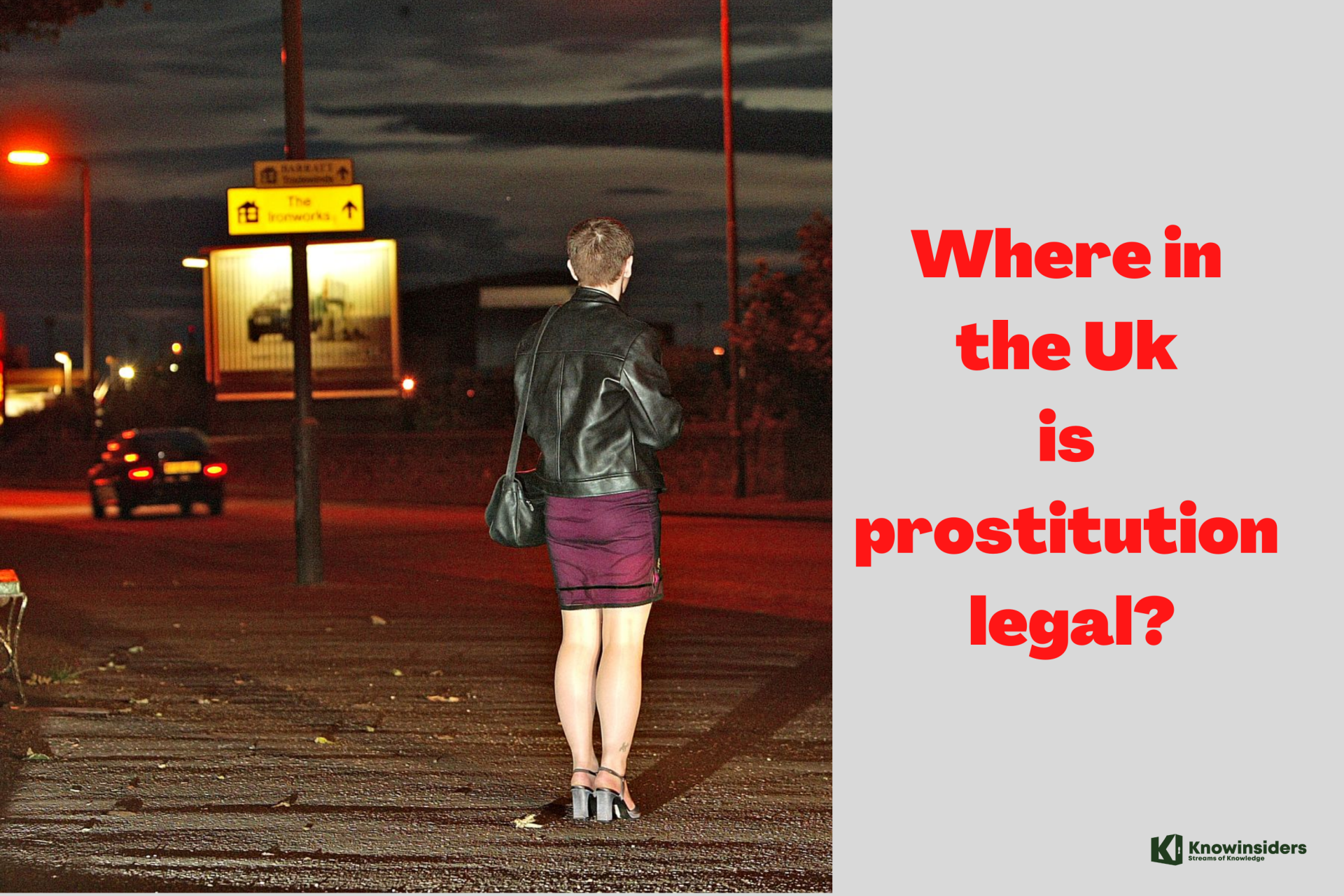Where Is Prostitution Legal In Thailand Today?
| Table of Contents |
Thailand is well-known for a variety of things, including its cuisine, islands, and chaotic, crazy capital city of Bangkok.
But it's also well-known for prostitution among some types of visitors. It's undeniable that it's very common and accessible throughout Thailand, even though most people who mention it do so with a smile or joke. However, it's not just a passing trend; it's been practiced for centuries and doesn't seem to be going away anytime soon, in spite of efforts to suppress it.
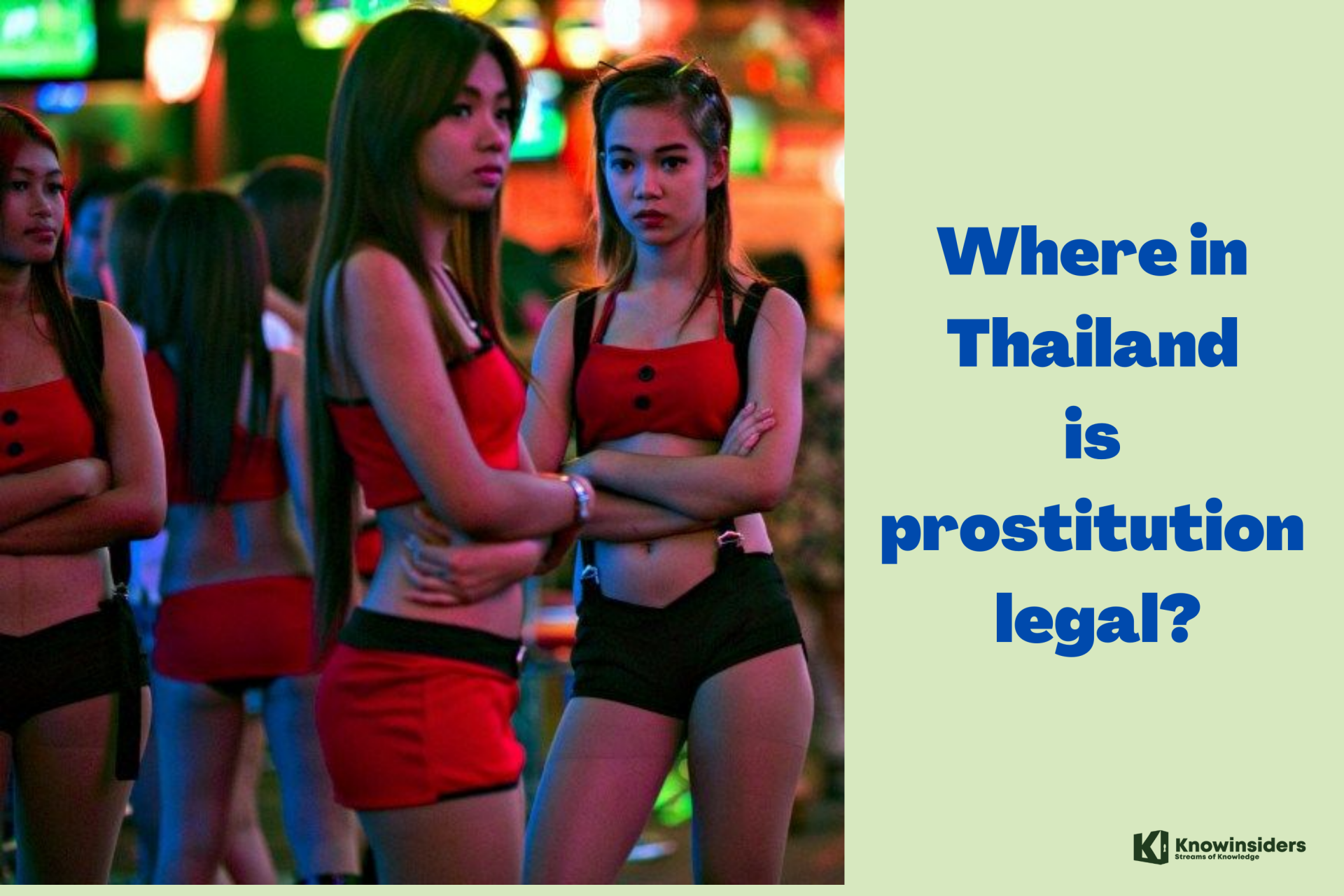 |
| Photo: KnowInsiders |
History of Prostitution in Thailand
Thailand's government legalized and taxed prostitution from the middle of the 1300s until the middle of the 1700s. Chinese laborers and prostitutes began to arrive in Thailand in large numbers between the late 1700s and the 1850s. Particularly following the abolition of slavery in 1905, when former slave wives under the feudal system found themselves abandoned and without means of subsistence, prostitution flourished. Subsequently, sex massage parlors gained popularity during the Japanese occupation of World War II. Urban migration and the expansion of the sex industry in the cities were caused by the Vietnam War, rising rural poverty, especially in the 1960s and 1970s, and the use of Thailand by American military personnel as a place to relax and have fun. As a result of the government spending millions of baht to boost travel, Thailand experienced a boom in sex tourism in the 1980s.
Prostitution is now forbidden by the 1996 Prevention and Suppression of Prostitution Act. A fine of 1,000 baht ($27) may be imposed on someone who requests sex. Pimps may be sentenced to one to ten years in prison and fined 20,200 Baht ($555). The Act also covers the trafficking of children for sex. Clients who engage in sexual activity with minors under the age of fifteen risk a fine of 120,000 baht ($3,300) and a jail sentence of two to six years. If the trafficked child is between the ages of 15 and 18, the fine is reduced to 60,000 baht ($1,650) and the prison sentence to one to three years. The Ministry of Justice briefly considered legalizing prostitution in 2003 in an effort to raise tax income and enhance conditions for sex workers.
Even though that discussion never resulted in legalization, prostitution is still accepted and viewed primarily as a business in Thailand today. There are numerous cultural and economic reasons why the sex industry will always exist.
Is prostitution legal in Thailand?While prostitution is not illegal in Thailand per se, many of the activities that are connected to it are. Prostitution is still widely prevalent in the nation due to economic dependence from the Vietnam War and police corruption. They typically originate from rural backgrounds, Isaan/the northeast, ethnic minorities, or neighboring countries, particularly Myanmar and Laos. They are also typically the product of poverty, low educational attainment, a lack of local hiring, and rural backgrounds. According to UNAIDS, there are 43,000 sex workers in Thailand as of 2019. |
Free – in name alone
 |
| Photo: Journey back to the source |
Although freedom from slavery was achieved with the abolition of slavery, enslaved individuals who were left without land, property, or financial means to support their families frequently had no choice but to become prostitutes. The number of brothels started to increase and disperse throughout the whole country. Here, they faced competition from Chinese immigrants, who arrived as a result of Thailand's mid-19th century rice export boom, as well as from younger children who were in high demand.
During the war, the prostitution industry also grew rapidly. Thai women were exploited as prostitutes by the Japanese during their occupation of Thailand in World War II. Thailand was a popular destination for US soldiers to spend their rest and recuperation leave, even though it was not involved in the Vietnam War. They flocked to places like Bangkok's Patpong and the beach city of Pattaya, which are still popular destinations for prostitutes today.
An economic shift
Thailand's economy developed in tandem with its modernization. When the villagers' economy shifted from one based on sustenance to one based on capitalism, they needed money to buy goods. Many simply could not afford to live, so they turned to prostitution and migrated in large numbers to large cities, where they made more money than they could have possibly made anywhere else before returning home. This pattern is still prevalent today; for many, sending money home each month to support their families is the only way they can support themselves.
Thailand made significant investments to promote itself as a travel destination in the late 20th century after realizing the potential of tourism. Sex tourism also experienced a boom as a result of the tourism boom; it is estimated that over 4 million visitors visit Thailand specifically for its sex industry each year.
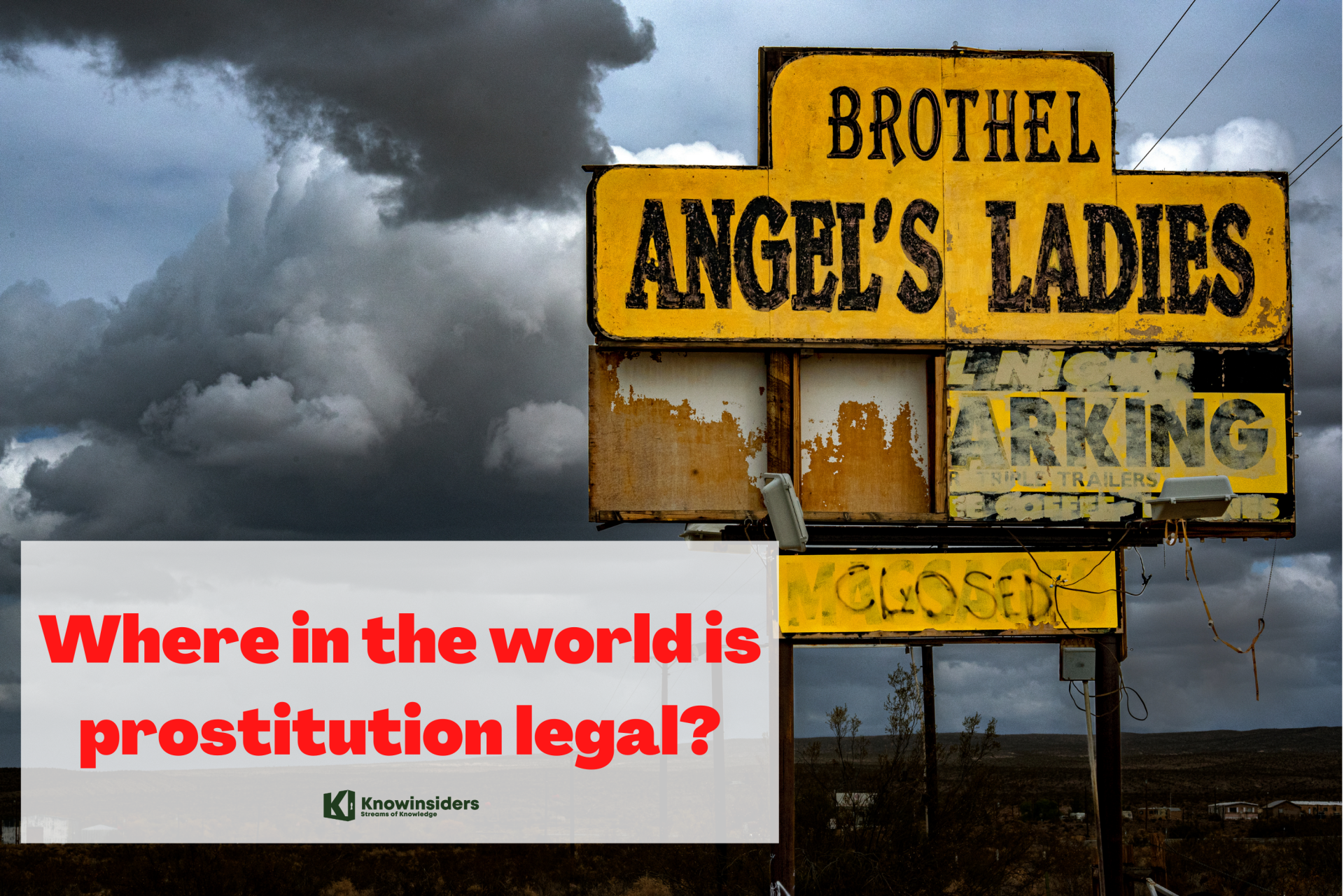 Where Is Prostitution Legal In The World? Where Is Prostitution Legal In The World? Prostitution exists and will continue to exist despite bans and their legal status, due to reasons like poverty or unforeseen situations. |
Legal underpinnings
The legal framework governing prostitution in Thailand is based upon three acts:
Prevention and Suppression of Prostitution Act
The law that deals with prostitution the most directly is the Prevention and Suppression of Prostitution Act, B.E. 2539 (1996). Under the act, the definition of "prostitution" is "Sexual intercourse, or any other act, or the commission of any other act in order to gratify the sexual desire of another person in a promiscuous manner in return for money or any other benefit, irrespective of whether the person who accepts the act and the person who commits the act are of the same sex or not." The phrase "in a promiscuous manner" is not defined explicitly.
People who are "...causing a nuisance to the public..." or who solicit sex "...in an open and shameless manner..." (the term is not defined) may be fined under the act. Individuals who associate with another person in a "prostitution establishment" with the intention of engaging in prostitution risk jail time, a fine, or both. In cases involving child prostitution, which carry harsher penalties (up to six years if the prostitute is younger than 15 years old), the term "prostitution establishment" is not clearly defined, but it may be broadly interpreted to include any location where prostitution occurs. In any case, the law is not typically enforced against prostitution in private spaces. Additionally, the act imposes harsher penalties on owners of establishments and businesses engaged in prostitution. The criminal code also lists consequences for obtaining or utilizing funds obtained through prostitution.
Child prostitution and trafficking were given special consideration in the writing of the Prevention and Suppression of Prostitution Act. Customers who have sex with sex workers under the age of fifteen face penalties under Section 8, which include a two- to six-year prison sentence and a fine of up to 120,000 baht. Sex workers who are between the ages of fifteen and eighteen risk a fine of up to 60,000 baht and a prison sentence of one to three years.
In regard to trafficking, Section 9 of the act states that "Any person who procures, seduces or takes away any person for the prostitution of such person, even with her or his consent and irrespective of whether the various acts which constitute an offense are committed within or outside the Kingdom, shall be liable to imprisonment for a term of one to ten years and to a fine of twenty thousand to two hundred thousand Baht."
Furthermore, Section 9 imposes a "one-third heavier" penalty for any offense committed "by means of fraud, deceit, threat, violence, [or] the exercise of undue influence or coercion."
According to Thai law, getting sex services for oneself without engaging in any of the aggravating circumstances—such as trafficking, underage sex workers, fraud, deception, violence, or the use of undue influence or coercion—remains legal and is not punishable.
Penal Code Amendment Act
It is not stated in the Penal Code Amendment Act (No. 14), B.E. 2540 (1997) that prostitution is prohibited in Thailand.
Title IX, Section 286 of the Penal Code, on the other hand, stipulates that: "Any person who, at the age of sixteen or older, subsists on the earning of a prostitute, even if it is a part of her incomes, shall be punished with imprisonment for life or with a fine of fourteen thousand to forty thousand Baht." The same section of the act penalizes anyone who: (i) is found living with or regularly associating with a prostitute; (ii) receives boarding, money, or other benefits arranged for by a prostitute; or (iii) assists any prostitute in a fight with a customer, though the exact penalties are not stated.
Although the Act was created to address child prostitution, it is not entirely clear what constitutes a "indecent act." Title IX, Section 279 of the Penal Code states: "Whoever, commits an indecent act on a child not yet over fifteen years of age, whether such child shall consent or not, shall be punished with imprisonment not exceeding ten years or fined not exceeding twenty thousand Baht, or both."
Entertainment Places Act
According to the Entertainment Places Act of 1966, owners of specific kinds of entertainment establishments are held criminally responsible if prostitution takes place on their property. The act mandates that after serving their time for engaging in prostitution, sex workers must also spend a year in rehabilitation at a reform home.
Similar practices include operating brothels, requesting clients, and making money off of other people's prostitution are prohibited. Laws against public nuisances are also applied to prostitution. Prostitution is a covert industry that operates throughout the nation.
Legalization AttemptIn 2003, a public discussion on the subject of legalizing prostitution as an official occupation with health benefits and taxable income was organized by the Ministry of Justice. Proposals for legalization and regulation aimed to boost tax receipts, lessen corruption, and enhance worker welfare. Still, no more action was taken. Thai prostitutes participated in a legalization drive in 2020. The Empower Foundation, an organization that advocates for sex workers, is attempting to get 10,000 signatures on a petition in order to present it to parliament. |
Prostitution in Thailand Today
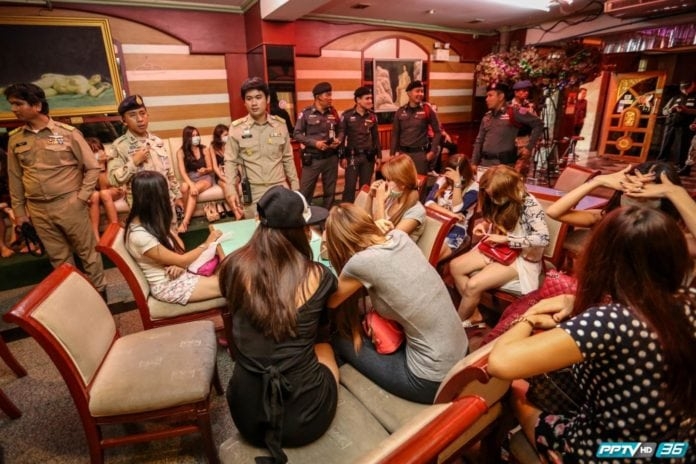 |
| Police sting operations horrify Thai sex workers. Photo: Bangkok Jack |
The Thai Ministry of Public Health and non-governmental organizations claim that the country's sex industry employs over 120,000 people. Siddharth Kara, an author and fellow of the Harvard University Carr Center for Human Rights Policy, gives an illustrative account of the Thai sex industry. Bangkok is home to many local prostitutes, sex tourists, and sex buyers.
Although prostitution is illegal in Thailand, it is nevertheless a very profitable industry, according to the government, brothel owners, and sex workers. Prostitutes actively seek clients on the streets and in areas with traffic lights. Red-light districts in Thailand provide a wide range of options at reasonably low prices, catering to different types of demand. In contrast, a fifteen-minute encounter in Amsterdam costs approximately fifty euros ($56), while a twenty- to thirty-minute session in a Thai brothel costs between 600 and 1,000 baht ($16 and $27).
Many female sex workers do so in order to fulfill their obligations to their families, according to interviews with multiple sex workers. In Thai culture, adult children are expected to look after their parents. Typically, this responsibility is placed on the youngest daughter who is single. Many rural, uneducated women decide that working in the sex industry is the best way to support themselves, and as a result, they relocate to larger cities.
Since they typically have no other employment options, they are unable to leave once they are there. These upscale businesses and popular tourist destinations in Bangkok aren't always the hubs of Thailand's sex trafficking. Instead, they encourage a culture of acceptable sexual norms, which takes the form of sex trafficking in the lower echelons of the sex industry, which is less well-known.
Sex Trafficking in Thailand Today
Victims of sex trafficking are usually located in remote massage parlors, prostitution on the streets, sex clubs, and basement brothels. There are a lot of Thai prostitutes, but there are also a lot of Burmese, Laotian, and Nigerian prostitutes. These people were either sold by brokers or seduced under false pretenses. Typically, brothel owners or other brokers pay $200–$875 for them, and they have to repay their “debt.”
Thailand's geographic location is crucial to the growth of the sex trafficking business. It is near war-torn Cambodia, Laos, and Myanmar. Vietnam and China are also close by. Porous borders and a variety of waterways make trafficking easier. The bulk of trafficking operations in Thailand are reportedly carried out by local individuals or small groups of brokers, according to Thai law enforcement.
On the other hand, organized crime groups like the Russian gangs and the Japanese yakuza have gradually taken over the nation. One thing is for sure: Thailand's neighbors in East Asia are no longer the only places where sex trafficking occurs. The country has seen an increase in the number of victims who are Russian or Eastern European.
Following the US State Department's decision to express concerns about widespread human trafficking in the nation, Thai authorities have intensified their campaign against human traffickers in recent years.
A record 1,807 victims of human trafficking were freed by Thai authorities in 2019; nearly three-quarters of the victims were migrants from Myanmar, and about two-thirds were women.
Experts estimate that a far larger number of people are actually trafficked annually.
Approximately 610,000 people are victims of human trafficking in Thailand, and many of them work in the infamous sex industry, according to Walk Free's Global Slavery Index.
Couple Arrested For Having Sex and Broadcasting
Online footage of Nong Khai Nao and her boyfriend engaging in sexual acts was reported by Bangkok Post. Miss Bad Egg, Nong Khai Nao, and her boyfriend were taken into custody after engaging in sexual activity and sharing it on the website OnlyFans, which allows users to post explicit images and videos for a fee.
The "sex content creator" controversy has rekindled discussions about traditional morality and liberal perspectives on the legal boundaries of sexual activity and appropriate approaches to handling it.
The internet portrays adult consenting sex between two parties. However, people can copy sexual acts that are made public in exchange for cash. Such behaviors may also encourage sexual offenses against innocent children.
The Nong Khai Nao saga demonstrated that women had few options and job opportunities, according to Jadet Chaowilai, director of the Women and Men Progressive Movement Foundation.
He stated that legalizing sex workers would allow them to pay appropriate income taxes; pursuing and detaining them is not the answer.
According to Mai Chanta, a sex worker and Empower Foundation member, the act criminalizes prostitution and permits dishonest officials to demand bribes from sex workers in order for them to carry on with their business.
Police nab prostitution kingpin
In October 2021, Thai police detained a man who they claim was the mastermind of a prostitution ring that took advantage of many poor people.
Following a five-year investigation into his business activities, local authorities detained Prasert Sukkhi, the 63-year-old owner of a massage parlor in Bangkok, on October 4.
Prasert is accused of operating a prostitution ring involving 121 women, the majority of whom are from nearby countries. Prasert was also wanted on suspicion of money laundering. There are eight under-18 accusers.
Rights advocates and experts claim that Thailand has long been a center for the sexual exploitation of young men and women, including children.
The United Nations Children's Fund (UNICEF) states that, on average, 52 children in Thailand are abused sexually, physically, or psychologically, neglected, or exploited every day, or more than two children every hour.
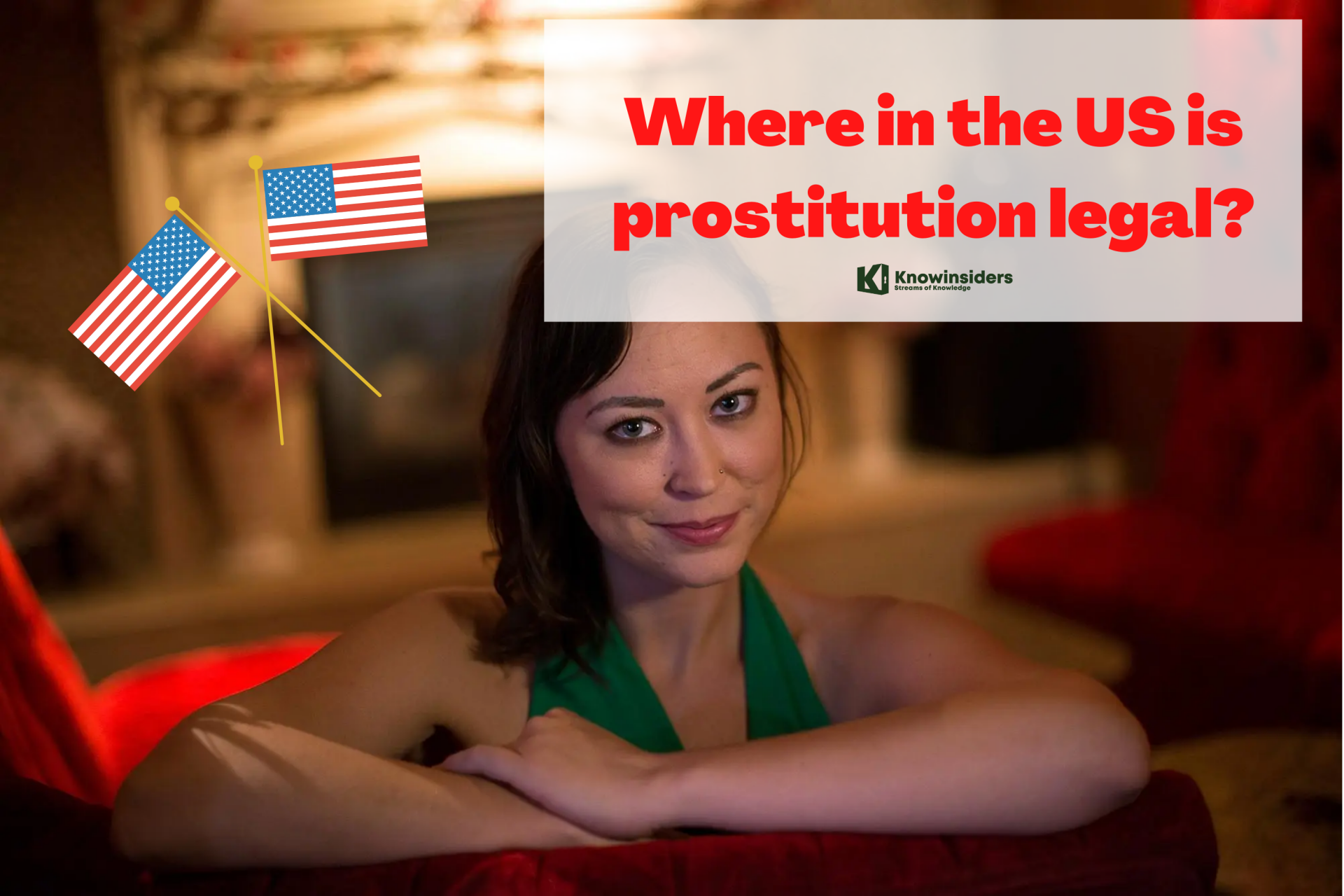 Where Is Prostitution Legal In The US? Where Is Prostitution Legal In The US? Prostitution is illegal in the United States with the exception of 10 Nevada counties. Prostitution is the legal issues that creates an intense debate in ... |
 Where Is Prostitution Legal In The World? Where Is Prostitution Legal In The World? Prostitution exists and will continue to exist despite bans and their legal status, due to reasons like poverty or unforeseen situations. |
 'Sugar Daddy' Dating Platform: Luxury Prostitution, Sugarbook’s founder, How Sugarbabies are Found? 'Sugar Daddy' Dating Platform: Luxury Prostitution, Sugarbook’s founder, How Sugarbabies are Found? The terms “sugar dady” and “sugar baby” are no more unusual to people and there is even an online dating platform called Sugarbook that commits ... |

